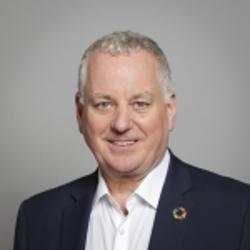Iraq: Yazidis
(asked on 25th March 2019) - View SourceQuestion to the Department for International Development:
To ask Her Majesty's Government how much financial support, if any, they plan to provide for psychological services to those members of the Yazidi community captured by ISIS and now returned to Iraq.
UK humanitarian support is distributed on the basis of need, to ensure civilians are not discriminated against on the grounds of race, religion or ethnicity. However, we remain concerned about appalling crimes committed against minorities in Syria and Iraq, including the Yezidi community. We expect our partners, including the UN and NGOs which implement our aid programmes, to ensure they are doing all they can to support the most vulnerable people, including those who have suffered religious persecution.
In Iraq, UK aid is primarily delivered through UN OCHA's Iraq Humanitarian Pooled Fund (IHF), to which the UK was the largest donor in 2018. The IHF is the main international humanitarian mechanism in Iraq and health - including psychosocial support - is its largest component. Work to provide healthcare services to 1.2 million more people this year, including Yezidis, has already begun. UK aid has also enabled the UN Trust Fund to support the Free Yezidi Foundation which runs a centre in Northern Iraq providing access to a psychologist and a trauma programme for women and children who have suffered under Daesh. The UK is providing £75,000 in support to the SEED Foundation which delivers gender-focused mental health and psycho-social support training in the Kurdistan Region of Iraq. This work will benefit women from many communities across the Kurdistan Region, including Yezidis.
In Syria, UK aid has provided more than £40 million this financial year to support the most vulnerable people in areas liberated from Daesh. Across Northeast Syria, this includes mental health support, child protection and education, support to demining and assisting survivors of Gender-Based Violence.

